Beauty pageants have been a part of American culture for over a century, with the Miss America pageant being one of the most well-known and prestigious.
However, there are also a number of bizarre beauty pageants held across the United States that may leave some people scratching their heads.
One of these unusual pageants is the Miss Idaho Potato pageant. Held annually in the city of Burley, Idaho, this pageant has been running since 1935 and has become a beloved tradition in the state.
Contestants are judged on their poise, personality, and potato knowledge, and the winner is crowned with a tiara made from potatoes.
Another strange beauty pageant is the Donut Queen contest, held in Cambria County, Pennsylvania. This pageant requires contestants to dress up as donuts and show off their donut knowledge in addition to traditional beauty pageant skills. The winner is awarded a tiara made of donut boxes.
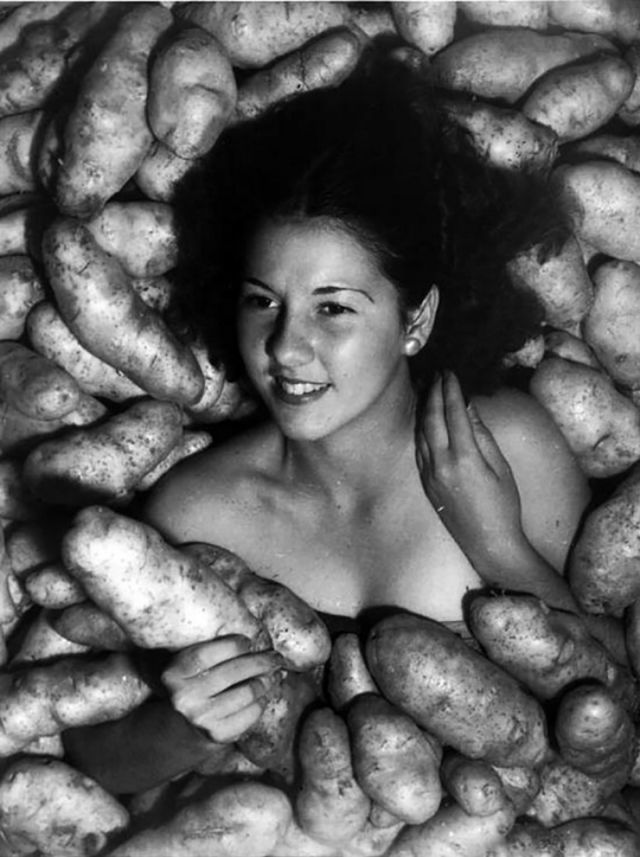
Miss Idaho Potato, 1935.
The Frankfurter Queen pageant, held in Frankfurt, Illinois, is another bizarre event. Contestants are required to dress up as hot dogs and compete in categories such as “best bun” and “most creative toppings.”
Similarly, the Sausage Queen pageant in New Braunfels, Texas, requires contestants to dress up as sausages and compete in various categories related to sausage knowledge and sausage-themed outfits.
While these bizarre beauty pageants may seem strange to some, they have become beloved traditions in their respective communities.
Participants and spectators alike enjoy the humor and creativity involved in these events, and they provide a lighthearted alternative to the more serious and competitive beauty pageants.
Of course, not everyone is a fan of these unusual pageants. Some people argue that they are demeaning to women and perpetuate outdated gender stereotypes.
Others argue that they are simply silly and do not promote any positive values or messages. Regardless of one’s opinion on these pageants, they are certainly an interesting and unique part of American culture.
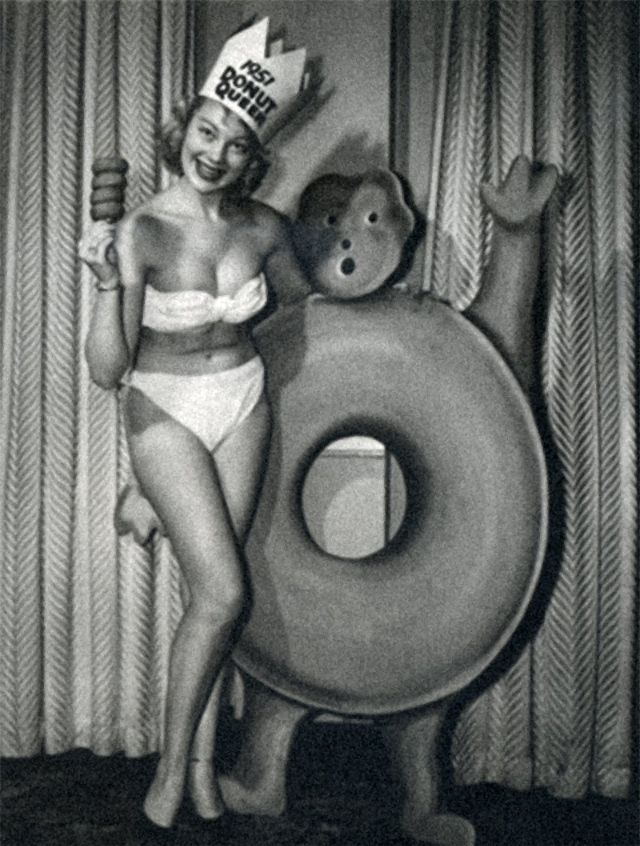
Donut Queen, 1951.
European festivals dating back to the medieval era provide the most direct lineage for beauty pageants. For example, English May Day celebrations always had the selection of a May Queen.
In the United States, the May Day tradition of selecting a woman to serve as a symbol of beauty and community ideals continued, as young, beautiful women participated in public celebrations.
A beauty pageant was held during the Eglinton Tournament of 1839, organized by Archibald Montgomerie, 13th Earl of Eglinton, as part of a re-enactment of a medieval joust that was held in Scotland.
The pageant was won by Georgiana Seymour, Duchess of Somerset, the wife of Edward Seymour, 12th Duke of Somerset, and sister of Caroline Norton, and she was proclaimed as the “Queen of Beauty”.
Entrepreneur Phineas Taylor Barnum staged the first modern American pageant in 1854, but his beauty contest was closed down after public protest.
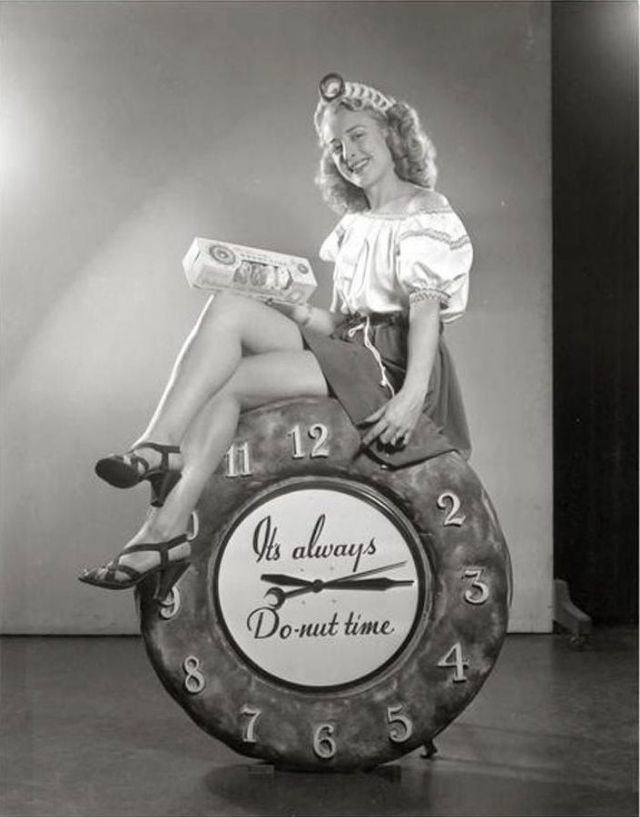
Donut Queen, c. 1950s.
Beauty contests became more popular in the 1880s. In 1888, the title of ‘beauty queen’ was awarded to an 18-year-old Creole contestant at a pageant in Spa, Belgium.
All participants had to supply a photograph and a short description of themselves to be eligible to enter and a final selection of 21 was judged by a formal panel.
Such events were not regarded as respectable. Beauty contests came to be considered more respectable with the first modern “Miss America” contest held in 1921.
The oldest pageant still in operation today is the Miss America pageant, which was organized in 1921 by a local businessman as a means to entice tourists to Atlantic City, New Jersey.
The pageant hosted the winners of local newspaper beauty contests in the “Inter-City Beauty” Contest, which was attended by over one hundred thousand people.
Sixteen-year-old Margaret Gorman of Washington, D.C., was crowned Miss America 1921, having won both the popularity and beauty contests, and was awarded $100.
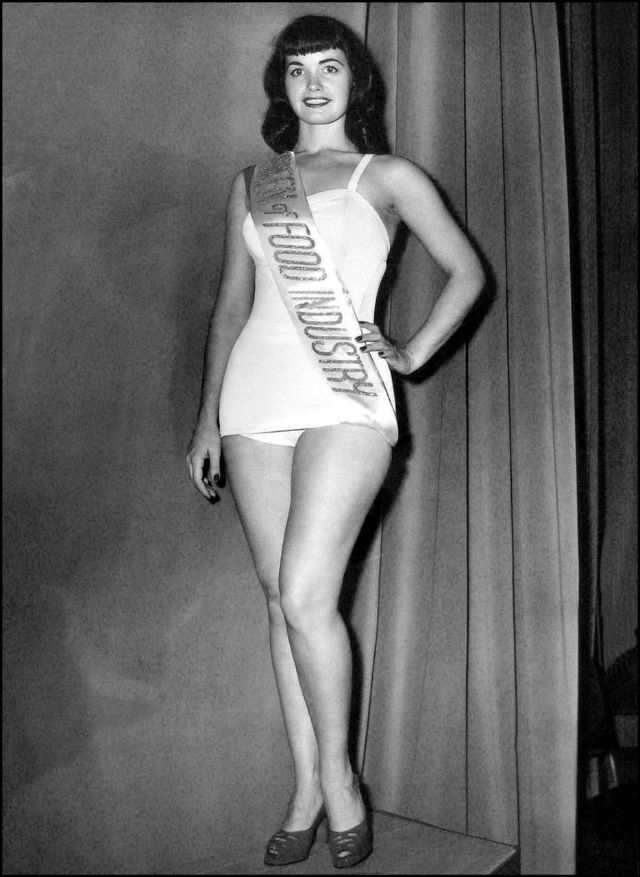
Miss Food Industry Bettie Page, c. 1951.
The requirement for contestants to wear a swimsuit was a controversial aspect of the various competitions. The controversy was heightened with the increasing popularity of the bikini after its introduction in 1946.
The bikini was banned for the Miss America contest in 1947 because of Roman Catholic protesters. When the Miss World contest started in 1951, there was an outcry when the winner was crowned in a bikini.
Pope Pius XII condemned the crowning as sinful, and countries with religious traditions threatened to withdraw delegates. The bikini was banned for future and other contests.
It was not until the late 1990s that they became permitted again, but still generated controversy when finals were held in countries where bikinis (or swimsuits in general) were socially disapproved.
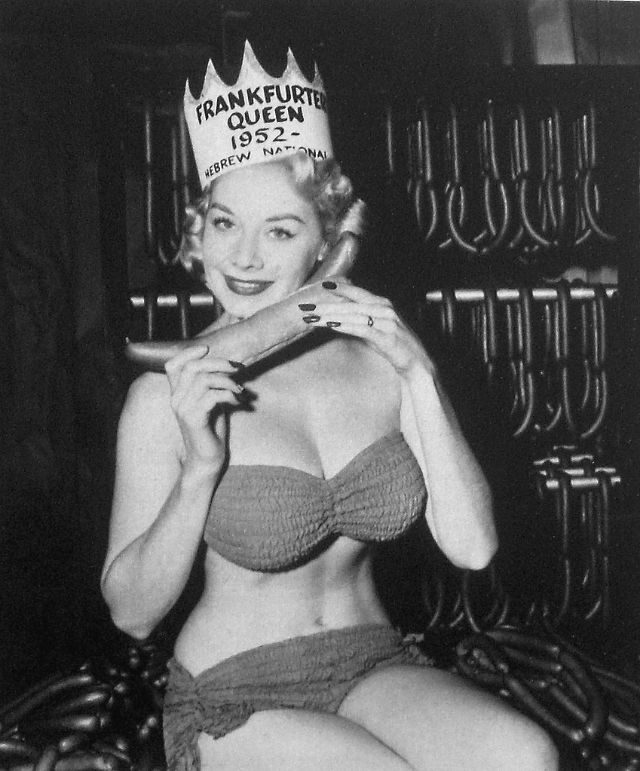
Frankfurter Queen, 1952.
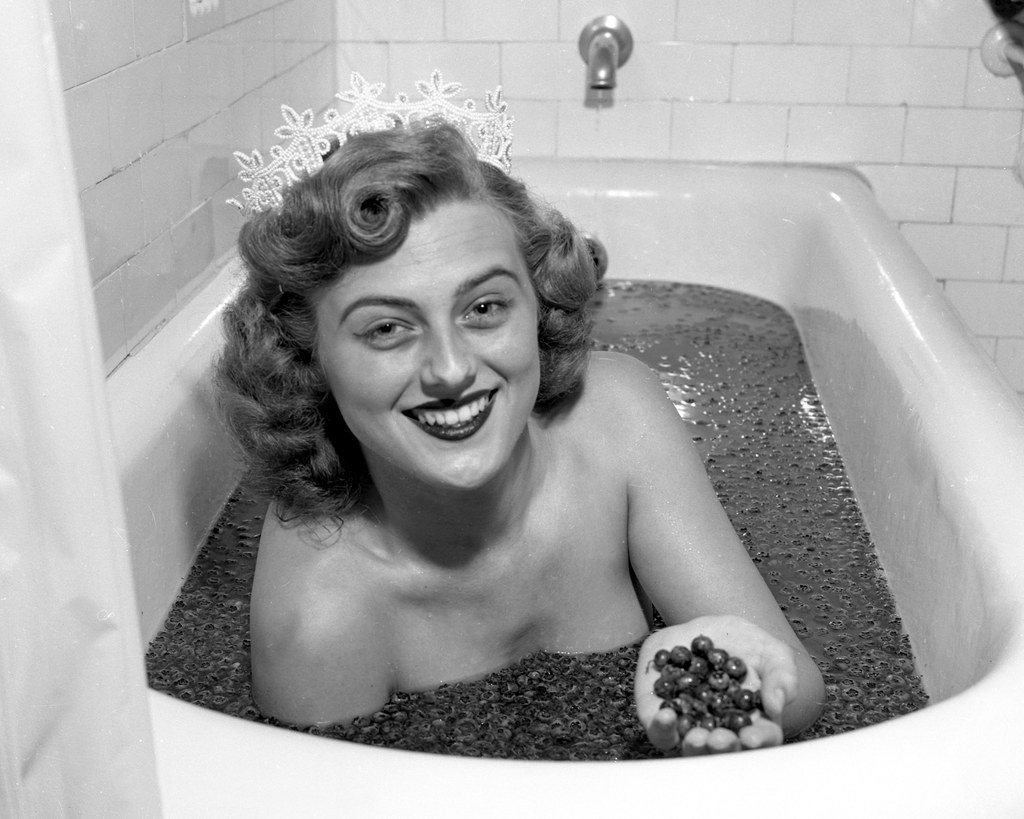
Blueberry Queen, 1955.
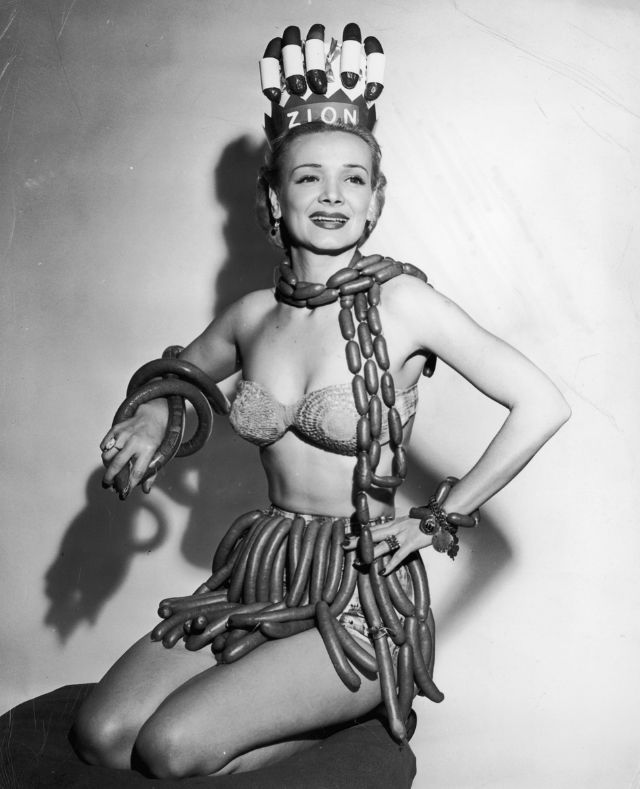
Miss Sausage Queen, 1955. Sponsored by the Zion Meat Company during National Hot Dog Week.
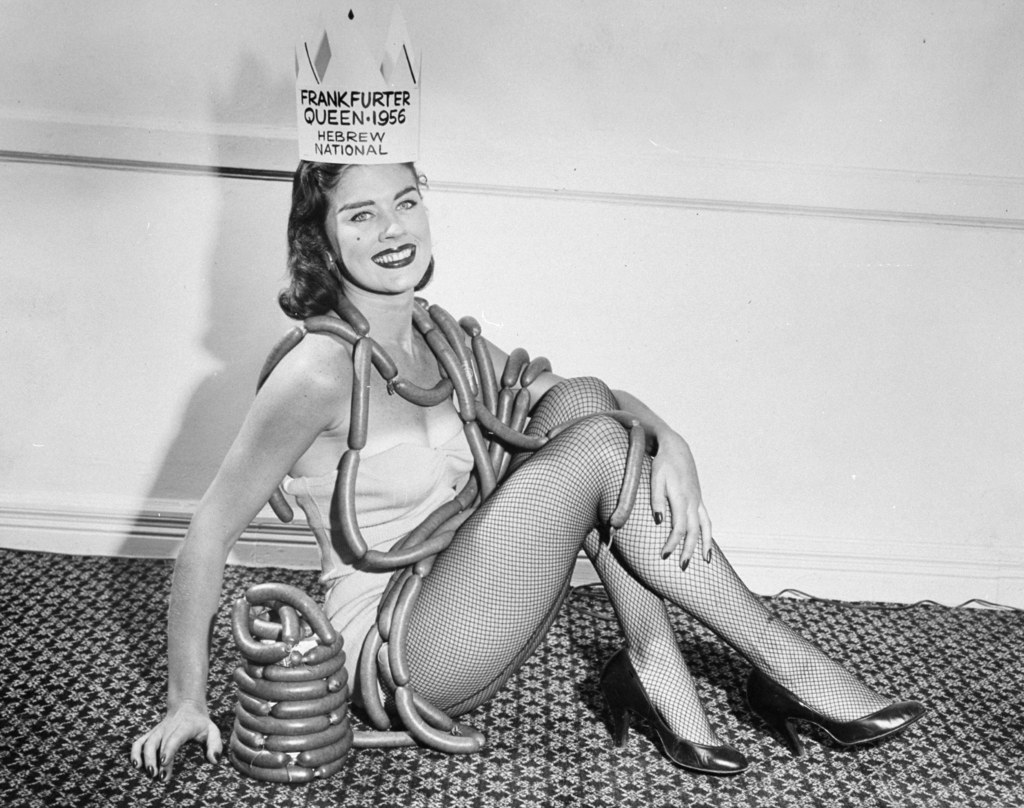
Sausage Queen, 1956. Sponsored by Hebrew National.
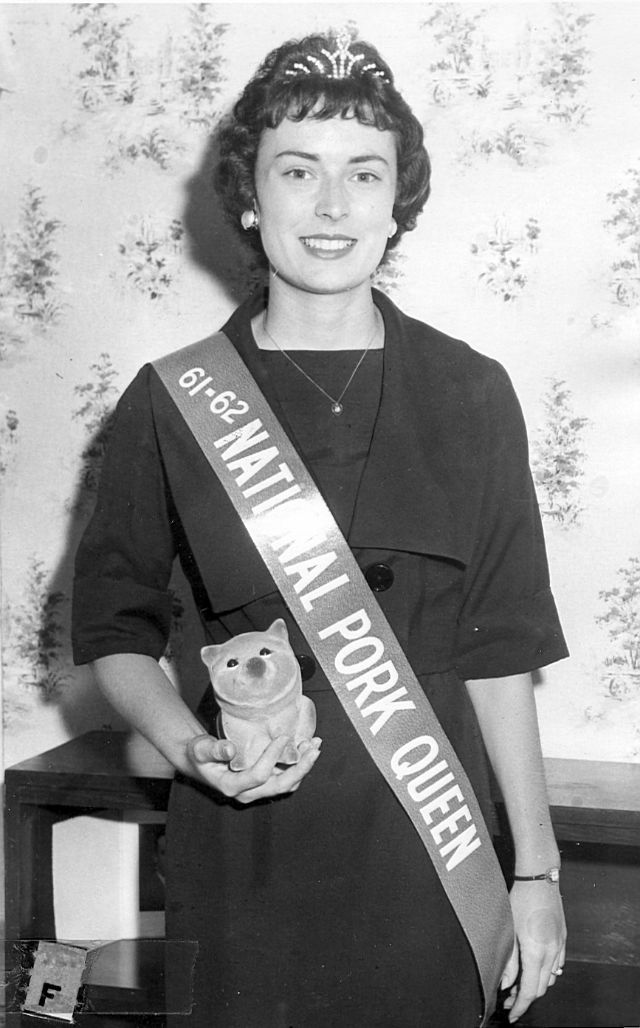
Natural Pork Queen, 1961-62.
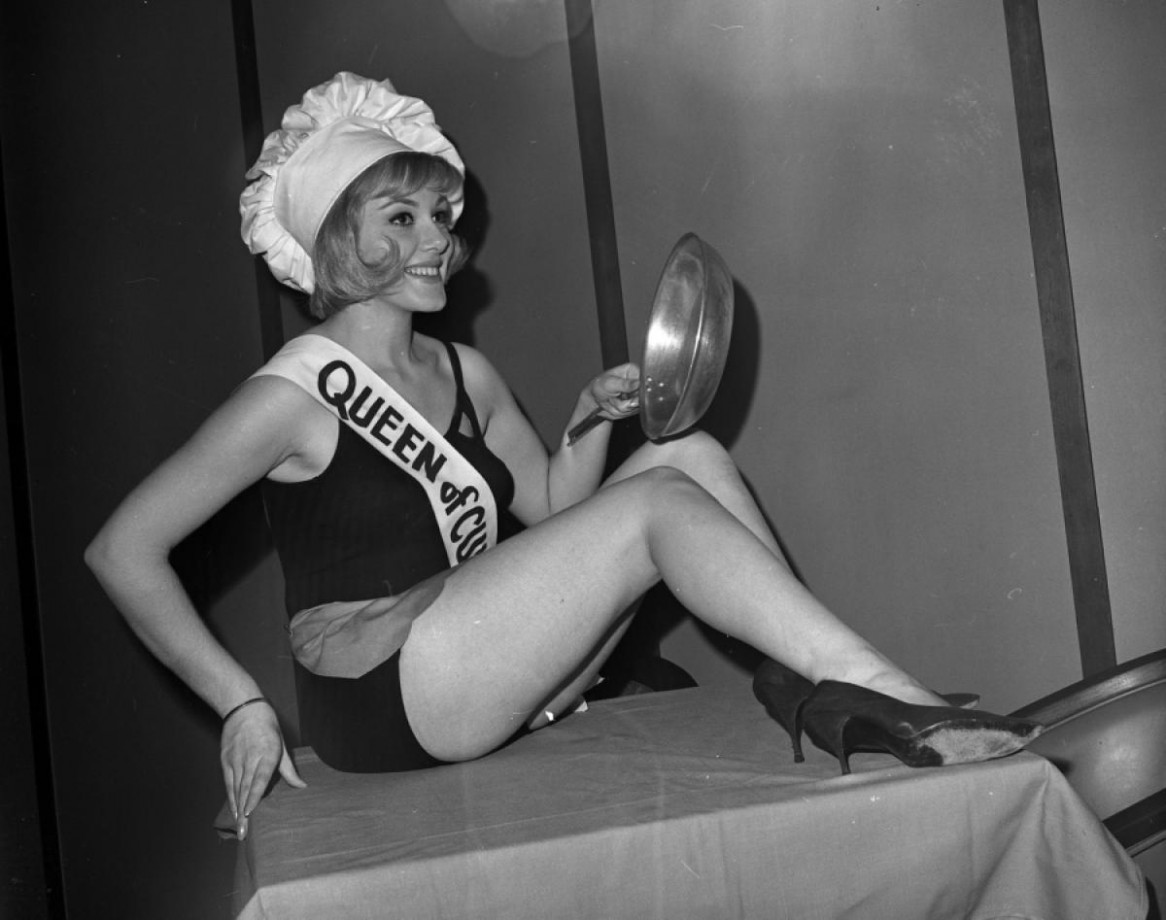
Queen of Cuisine, 1964.
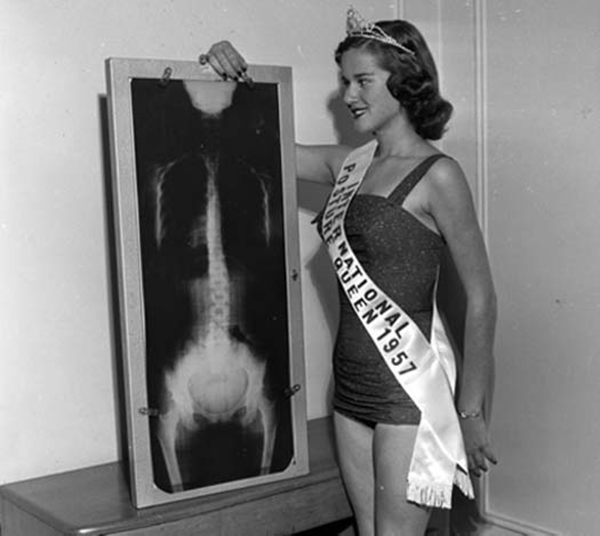
International Posture Queen, 1957.

Miss Orange Queen, ca. 1930s.
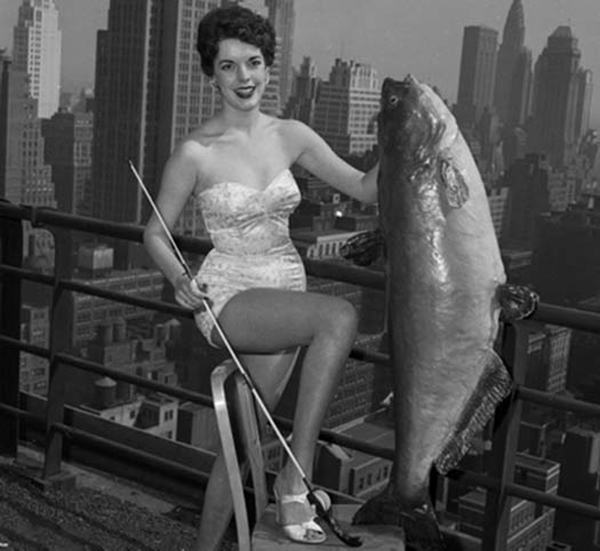
National Catfish Queen, 1954.
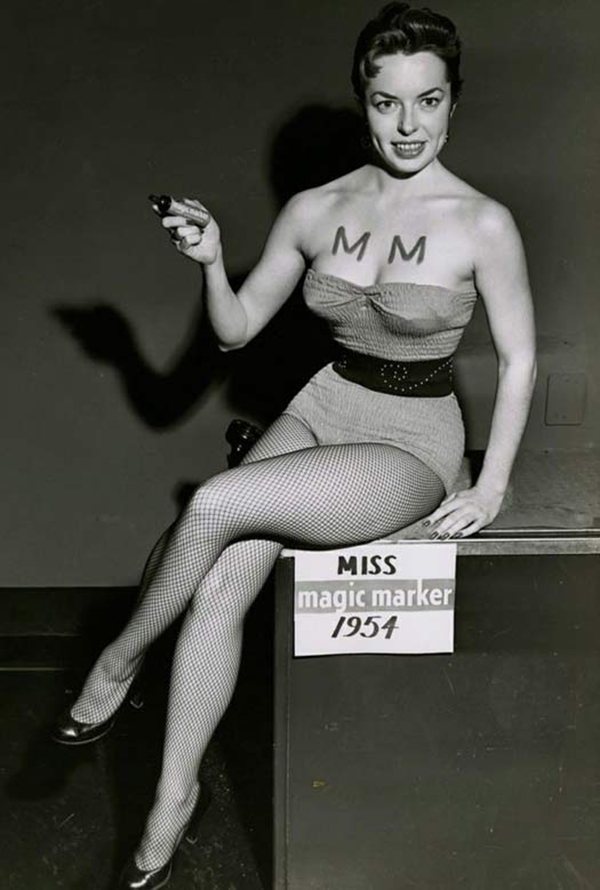
Miss Magic Marker, 1954.
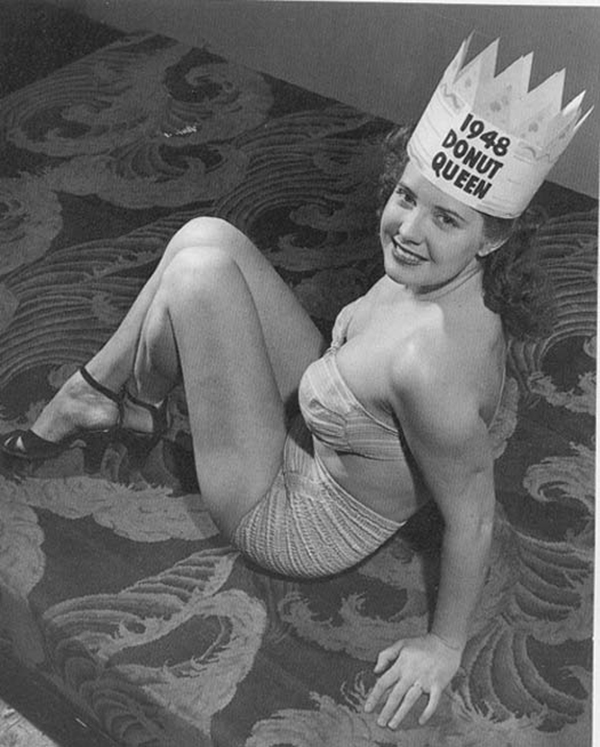
Donut Queen, 1948.
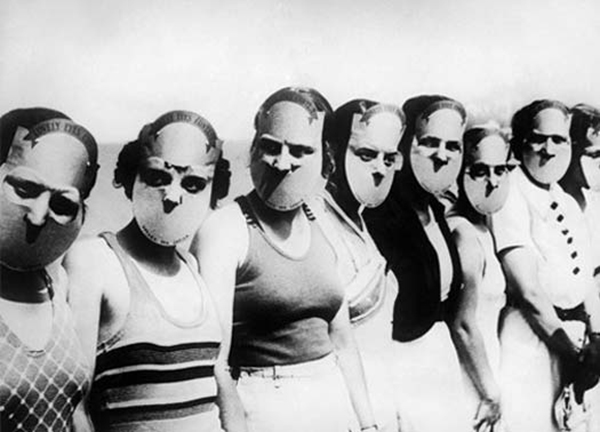
Miss Lovely Eyes Contest, ca. 1930s.

Miss Correct Posture, 1956.

Miss Atomic Bomb, 1957.

Betty Barrett crowned Miss Diaper Queen, Chicago, 1947.

Miss Radio Queen, 1939.

Sweater Queen, 1952.
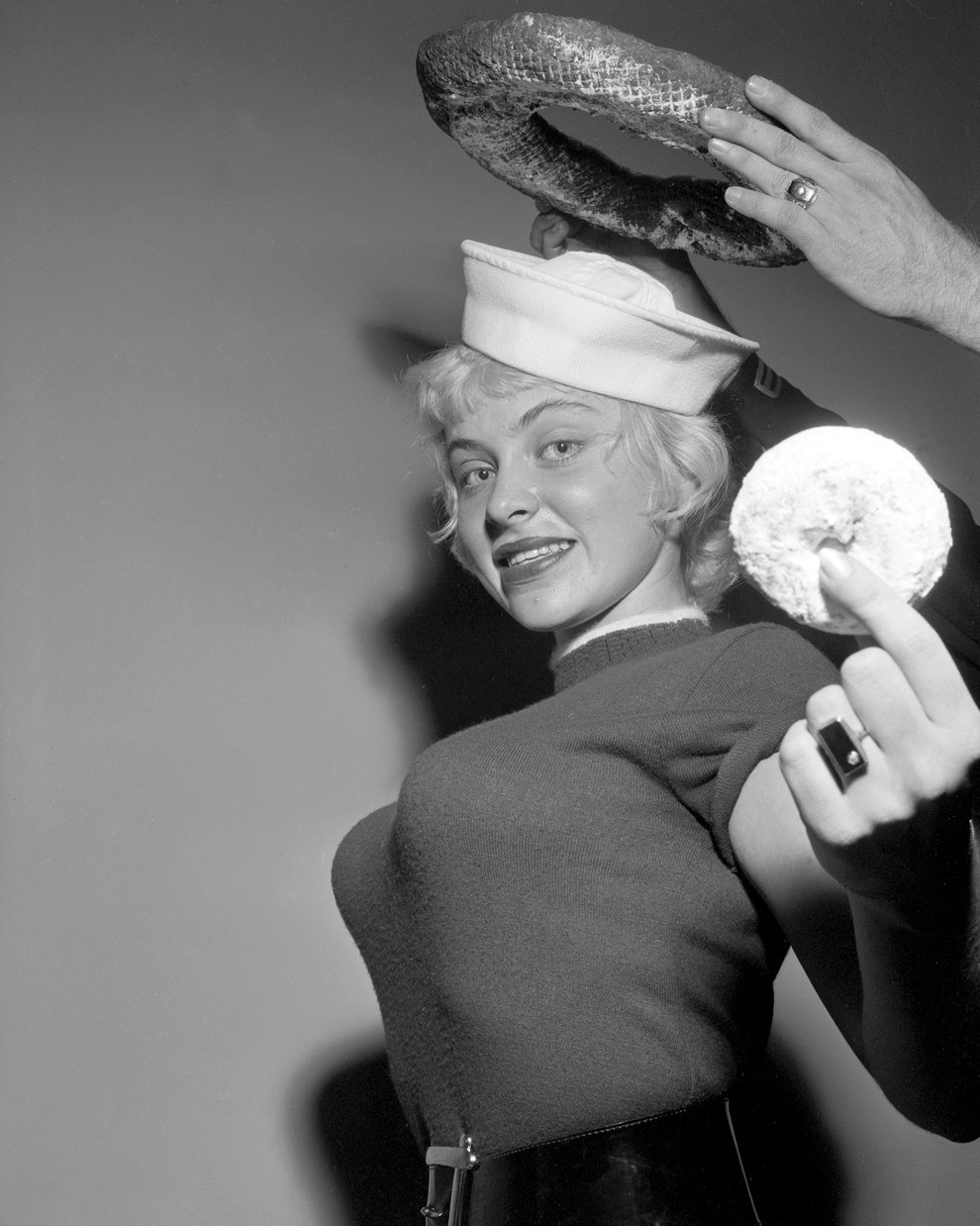
NYC Donut Queen, 1957.
(Photo credit: Wikimedia Commons / Library of Congress / Flickr / Pinterest).



